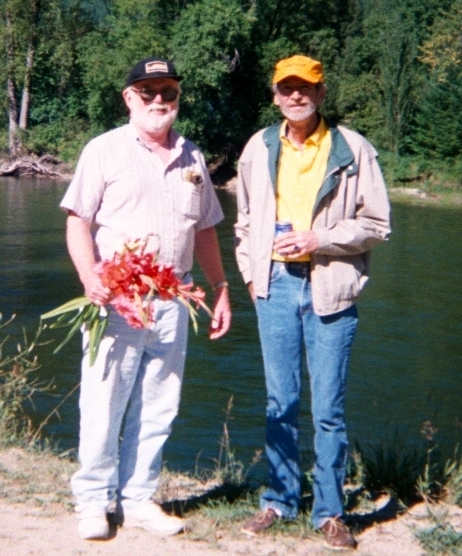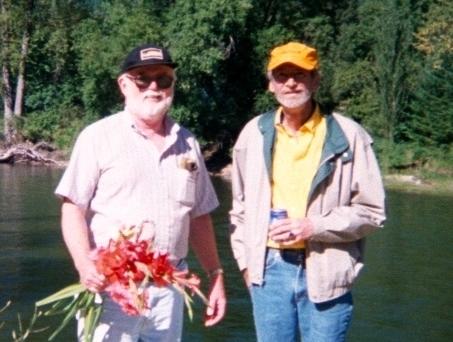
I graduated from the University of Pittsburgh in 1963 with a B.A. in the Humanities as a Spanish Major. I had hopes of eventually entering the Foreign Service, but that would never become a reality. With a special interest in Latin America, I wanted to take courses that would broaden my knowledge of that region: history, political science, and geography. These were the only courses I could take as an undergraduate. As I approached graduation, I decided to apply to the Peace Corps and was accepted for a contingent of volunteers to go to Colombia, South America, to work in educational television. Training was at the University of New Mexico in Albuquerque which was to begin the day after Labor Day.
In my first two years at Pitt, I was in ROTC and asked to go into the advanced ROTC and complete the four-year course. To do this, I had to take a physical for the army which required me to fill out the standard military medical questionnaire. “Do you have or have you ever had any of the following,” and the list contained every conceivable illness or operation with the final question: any homosexual tendencies? I was very naïve and answered honestly. When the doctor asked if I still had these tendencies, I said “No” and was accepted into the program, but decided not to go. However, my admission would pop up two years later when I applied to the Peace Corps, and it was the cause of my being rejected by that organization.
All candidates were investigated by the FBI. We were informed of the investigation, but I didn’t believe that I would have a problem. However, I started to become suspicious when friends, neighbors, university associates, and my former employer were asked if they had any knowledge about my sexual activity. Of course, no one knew anything about my personal sex habits, and they thought that the question was rather odd. This background report was given to the Peace Corps official who would be attending the selection process, and it would be the ultimate decision maker.
At the training center, we were tested for our knowledge of Spanish. The director informed us that this contingent had the greatest number of people who were sufficiently fluent in Spanish. There were five levels of fluency, and I was in the top level. Very early in the training period, we were given a psychological evaluation test; and it was very obvious that some of the questions were designed to determine who had potential homosexual tendencies. Such tests try to ask a question several different ways to see if there is any inconsistency in the answers. Apparently I gave them the “right” answers. I started the training, but midway through the course there was a review of each candidate. As a result of my background, which only the Peace Corps official had, I was “selected out.” Many of the training staff told me later they couldn’t understand why.
Needless to say, I was dejected. However, instead of returning to Pittsburgh I decided to go to Southern California, where I got a job with Southern Counties Gas Company and started a new life. When I was selected out, the Peace Corps informed my draft board in Pittsburgh; and my draft classification was changed to 1-A, which meant that I was now eligible to be drafted. Shortly after passing my six-month probation with the gas company, I received a draft notice. I notified my local board that I was living in Orange County, CA, and they forwarded my notice to the Orange County board to process.
When I got my draft notice from the Orange County board, it gave a date on which I was to report to their location to be bused to the L.A. induction center for processing. On the ride, I considered whether I should declare my homosexuality. I decided to tell to avoid being drafted. I also concluded that at some time during my tenure in the military, the Peace Corps incident would surface and I would be given a “discharge under undesirable conditions.”
At the induction center, I had to fill out the infamous questionnaire and answered “Yes” to the final question. The doctor who read my questionnaire told me that I had to see a psychiatrist, so off I went.
When I got to the psychiatrist’s office, the man appeared to be old enough to be my grandfather. He asked me why I was sent, though I was sure he knew the reason. I said it was my answer to the final question on the medical form. Just then a man walked slowly into the office, turned around and walked out. While he did this, I stopped talking and watched him till he left. I’m certain that the whole thing was staged in order to verify my statement. The psychiatrist asked me a few more questions, wrote his comments on the form, and sent me back to the doctor. On my way back, I read his comments: ”His allegation of homosexuality is true.” He concluded by stating: “His homosexual tendencies are the result of unsuccessful heterosexual attempts earlier in his life!” I was classified as 4-F and unfit for military service.
I was now free to pursue other activities. I decided to take some postgraduate courses at Cal State in Fullerton. They required that each applicant have a physical and complete a medical form. One of the questions on the form asked, “Have you ever been refused for military service; and if so, what was the reason?” My personal physician was gay and very familiar with the problems faced by gays in our society. I didn’t like this question, but he said that we needed to answer it with a plausible reason that would be acceptable without further questioning. He thought for a moment and came up with the ideal medical condition: spina bifida, which had no obvious symptoms. It worked, and was accepted for the next term. I resigned my job at the Gas Company to return to Pittsburgh, and used this same reason again when I applied for a job with a new company later that year.







Discussion2 Comments
Thank you for your story. You did the right things.
I graduated in 1969 and joined the Peace Corps and was sent to iran. I met my first lover there and upon return lived in New York for a couple of years. We broke up but remained life long friends. In 1974 I met my now husband who also was in the Peace Corps in Iran but a few years before me. Love and friendships can be found and cultivated in strange times and places.
Thanks Charles, I knew that I wasn’t the only family member in the Peace Corps. I wad devastated whe I was selected out, but I went on with my life. I felt that my rejection by the Peace Corps in 1963 was its loss, and it was nice of you to share this with me. In the picture, my late partner is wearing the yellow cap.